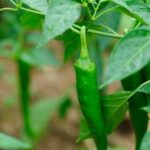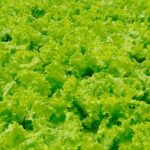Are you a North Texas vegetable gardener looking for tips and advice to make the most of your gardening experience? Whether you are a novice or seasoned gardener, this article is designed to provide valuable information on successful vegetable gardening in North Texas. From climate and growing conditions to the best vegetables to grow, common pests and diseases, and local resources, we’ve got you covered.
Located in the southern part of the United States, North Texas experiences unique climate and growing conditions that can present both challenges and opportunities for vegetable gardeners. With the right knowledge and tools, however, you can create a thriving and productive garden right in your own backyard.
In this article, we will explore the specific climate and growing conditions in North Texas, discuss the best vegetables to grow in this region, provide tips for successful vegetable gardening, address common pests and diseases, highlight local resources available to North Texas vegetable gardeners, and share inspiring success stories from fellow gardeners.
Whether you’re new to vegetable gardening or looking to enhance your skills, embracing the joys and challenges of gardening in North Texas can lead to a rewarding experience.
Climate and Growing Conditions in North Texas
North Texas is known for its hot and humid climate, which can pose a challenge for vegetable gardeners. The region experiences long, hot summers with temperatures often exceeding 100°F, as well as mild winters with occasional freezes. The soil in North Texas is predominantly clay-based, which can be difficult to work with and may require amendment to improve drainage and nutrient levels.
When planning a vegetable garden in North Texas, it’s important to consider the specific growing conditions of the region. Here are some key factors to keep in mind:
- Temperature: Consider choosing vegetable varieties that are heat-tolerant and resistant to sunburn, such as okra, peppers, and tomatoes.
- Soil: Amend clay soil with organic matter like compost or aged manure to improve drainage and fertility. Raised beds or container gardening can also provide better control over soil quality.
- Watering: Due to the high temperatures and occasional drought conditions in North Texas, efficient watering methods such as drip irrigation or soaker hoses are recommended to conserve water and ensure even moisture distribution.
Overall, successful vegetable gardening in North Texas requires careful consideration of the unique climate and growing conditions of the region. By selecting appropriate plant varieties and implementing smart gardening practices, North Texas vegetable gardeners can overcome these challenges and enjoy a bountiful harvest.
Best Vegetables to Grow in North Texas
When it comes to vegetable gardening in North Texas, choosing the right vegetables for the climate and growing conditions is essential for a successful harvest. Fortunately, there are several vegetables that thrive in the warm, sunny weather and well-drained soil of North Texas.
Tomatoes
One of the most popular vegetables to grow in North Texas is tomatoes. With proper care and maintenance, tomato plants can produce an abundance of delicious fruit throughout the growing season. Varieties such as cherry tomatoes, Roma tomatoes, and beefsteak tomatoes are particularly well-suited for the region.
Peppers
Another vegetable that flourishes in North Texas is peppers. Whether it’s bell peppers, jalapeños, or habaneros, pepper plants enjoy the hot climate of North Texas and can be a productive addition to any vegetable garden. They also come in a variety of colors and heat levels to suit different tastes.
Squash
Squash, including zucchini and yellow squash, are also excellent choices for North Texas vegetable gardens. These fast-growing plants can produce an abundant harvest with minimal effort, making them ideal for beginners and experienced gardeners alike.
By selecting these vegetables that are well adapted to the local climate, North Texas vegetable gardeners can increase their chances of a successful harvest while minimizing the challenges that come with gardening in this region.
Tips for Successful Vegetable Gardening in North Texas
When it comes to successful vegetable gardening in North Texas, there are a few key tips that can help ensure a bountiful harvest. The unique climate and growing conditions in this region can present challenges for even the most experienced gardeners, but with the right approach, it is possible to cultivate a thriving vegetable garden.
Here are some essential tips for North Texas vegetable gardeners:
- Choose the Right Vegetables: Selecting the right vegetables for North Texas is crucial. Opt for heat-tolerant varieties such as tomatoes, peppers, okra, and sweet potatoes that can withstand the hot summers.
- Soil Preparation: North Texas soil tends to be alkaline and clayey, so it’s important to amend the soil with organic matter such as compost or well-rotted manure to improve its texture and fertility.
- Watering Wisely: Proper watering is essential in North Texas, where drought conditions are common. Consider using soaker hoses or drip irrigation to deliver water directly to the base of plants and minimize water loss through evaporation.
- Pest Management: Be proactive in controlling pests such as aphids, caterpillars, and squash bugs. Consider using natural pest control methods like companion planting and introducing beneficial insects.
- Protect from Extreme Weather: Be prepared to protect your garden from extreme weather events such as hailstorms or sudden temperature drops. Row covers and shade cloth can provide protection when needed.
By following these tips and staying informed about best practices for gardening in North Texas, both novice and experienced gardeners can achieve success in cultivating their own fresh produce. The north texas vegetable gardener community is strong and ready to support those looking to enhance their skills in this specific environment.
Common Pests and Diseases in North Texas Vegetable Gardens
Pest Control
One of the biggest challenges for North Texas vegetable gardeners is dealing with pests that can damage or destroy their crops. Common pests in the region include aphids, hornworms, squash bugs, and spider mites. To effectively control these pests, it’s important to regularly inspect plants for signs of infestation and take preventive measures such as removing damaged leaves and using natural predators like ladybugs.
Disease Management
In addition to pests, North Texas vegetable gardeners also have to contend with diseases such as powdery mildew, blight, and root rot. Proper plant spacing, adequate air circulation, and regular inspection can help prevent the spread of diseases in the garden. Utilizing disease-resistant varieties and practicing crop rotation can also reduce the risk of plant diseases.
Organic Controls
For those who prefer organic gardening methods, there are natural ways to control pests and diseases. Techniques such as companion planting, using organic pesticides like neem oil or insecticidal soap, and applying compost tea can help keep pests at bay without using harmful chemicals. It’s important for North Texas vegetable gardeners to be proactive in managing pest and disease issues to ensure a successful harvest.
Given the unique climate and growing conditions in North Texas, vegetable gardeners should be aware of the specific pests and diseases that commonly affect their crops. By implementing proper pest control and disease management strategies, gardeners can protect their plants and promote a healthy, thriving vegetable garden.
Local Resources for North Texas Vegetable Gardeners
When it comes to vegetable gardening in North Texas, it’s important to know where to find the resources and support you need to be successful. Fortunately, there are several local resources available to help North Texas vegetable gardeners grow healthy and bountiful gardens.
One valuable resource for North Texas vegetable gardeners is the North Texas Master Gardener program. This program offers classes, workshops, and other educational opportunities specifically tailored to the unique climate and growing conditions of North Texas. Master Gardeners are also available to provide personalized advice and guidance to local gardeners.
Another essential resource for North Texas vegetable gardeners is the local agricultural extension office. These offices provide a wealth of information on topics such as soil testing, pest management, and recommended plant varieties for the region. They can also connect gardeners with additional resources and experts in the area.
For those seeking community and camaraderie in their vegetable gardening endeavors, joining a local gardening club or organization is highly beneficial. These groups often organize events, plant swaps, and other activities that allow members to share knowledge and experiences with fellow North Texas vegetable gardeners.
In addition to these formal resources, don’t underestimate the value of connecting with other local gardeners through online forums, social media groups, or neighborhood associations. Building a network of like-minded individuals can provide support, inspiration, and practical advice for navigating the joys and challenges of vegetable gardening in North Texas.
| Resource | Description |
|---|---|
| North Texas Master Gardener program | Offers classes, workshops, personalized advice, & guidance |
| Local agricultural extension office | Provides information on soil testing, pest management & connects gardeners with experts |
| Gardening clubs/organizations | Organize events & activities for members to share knowledge & experiences |
| Online forums/social media groups/neighborhood associations | Connects local gardeners providing support & inspiration |
By taking advantage of these valuable resources, north texas vegetable gardener can enhance their gardening knowledge while connecting with a supportive community of fellow enthusiasts.
Success Stories From North Texas Vegetable Gardeners
Many North Texas residents have embraced vegetable gardening and have found great success in cultivating their own fresh produce. One such success story comes from the Whitley family in Dallas, who transformed their backyard into a flourishing vegetable garden. Despite the challenges of the North Texas climate, they have managed to grow an abundance of tomatoes, bell peppers, and squash. With proper planning and care, they have been able to enjoy a bountiful harvest throughout the growing season.
Another inspiring tale comes from the Morales family in Fort Worth, who started with just a few raised beds in their backyard. They have since expanded their garden to include a wide variety of vegetables such as onions, carrots, and cucumbers. Their dedication to learning about the specific needs of each plant has allowed them to overcome the unique challenges of North Texas gardening and achieve remarkable success.
The Smiths from Denton are also among the many north Texas vegetable gardeners who have achieved impressive results. By implementing sustainable practices such as composting and companion planting, they have developed a thriving garden that provides them with an array of fresh produce year-round. Their commitment to organic methods has not only led to a successful harvest but has also contributed positively to the local ecosystem.
| Success Story | Location |
|---|---|
| Whitley Family | Dallas |
| Morales Family | Fort Worth |
| Smiths Family | Denton |
Conclusion
In conclusion, vegetable gardening in North Texas offers a unique set of joys and challenges for enthusiasts. The region’s diverse climate and growing conditions may pose difficulties for some, but with the right knowledge and resources, successful gardening is definitely achievable. As our local experts and success stories from North Texas vegetable gardeners have shown, it is possible to grow a bountiful harvest of delicious, fresh produce right in your own backyard.
While there may be common pests and diseases to contend with in North Texas, there are also plenty of tips and strategies for managing these challenges. By choosing the best vegetables to grow in this region and making use of the local resources available, including community gardens and educational workshops, aspiring gardeners can gain valuable insight and support.
With a little dedication and effort, anyone can experience the satisfaction of watching their plants thrive and yield an abundance of healthy vegetables.
In the end, embracing the joys and challenges of vegetable gardening in North Texas is not just about reaping a personal harvest – it’s also about cultivating a sense of community spirit. By sharing experiences, knowledge, and even surplus produce with fellow North Texas vegetable gardeners, we can all contribute to a healthier and more sustainable way of living.
So why not roll up your sleeves, dig into the soil, and join the growing community of passionate North Texas vegetable gardeners? There’s truly nothing quite like enjoying the fruits (and vegetables) of your labor.
Frequently Asked Questions
Is North Texas Good for Gardening?
North Texas can be a good region for gardening, as it has a long growing season and relatively mild winters. However, the region’s hot and dry summers can pose challenges for certain plants.
What’s the Easiest Vegetable to Grow in Texas?
The easiest vegetable to grow in Texas is likely the tomato. Tomatoes thrive in the warm climate of Texas and require minimal maintenance, making them an ideal choice for beginner gardeners.
Can You Have a Vegetable Garden Year Round in Texas?
Yes, it is possible to have a vegetable garden year-round in Texas, especially in the southern parts of the state where the climate is milder in the winter months. By choosing cold-hardy vegetables and utilizing protective measures, such as row covers or greenhouses, you can extend your garden’s growing season throughout the year.

If you’re looking to get into vegetable gardening, or are just looking for some tips on how to make your current garden better, then you’ve come to the right place! My name is Ethel and I have been gardening for years. In this blog, I’m going to share with you some of my best tips on how to create a successful vegetable garden.





